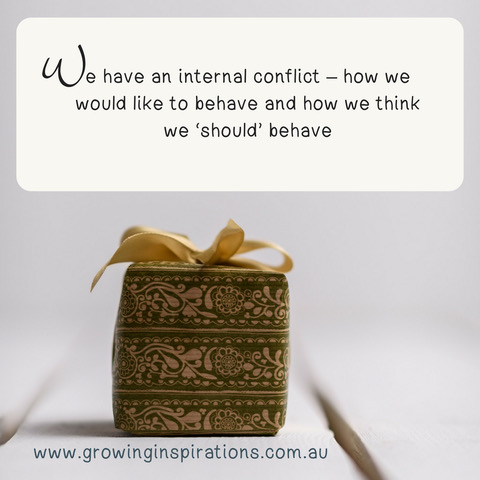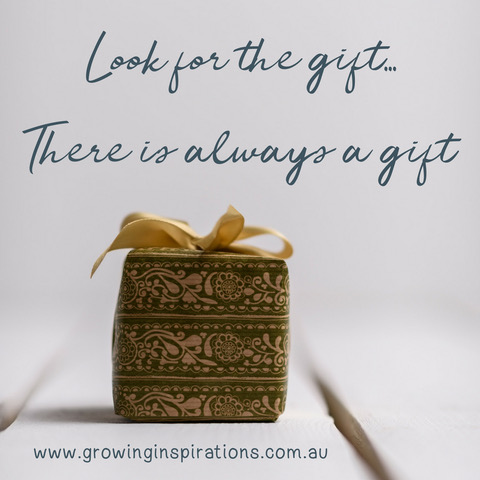When we experience symptoms in the body we have a choice about how we respond.
We can see a headache as an inconvenient symptom and take a headache tablet. Or we can see it as feedback. Does it signal too much caffeine, not enough sleep, dehydration or trying to do too much and needing some fresh air and a break from the computer?
This doesn’t mean we can’t take a headache tablet, but our reflection can offer an opportunity to reduce the severity or recurrence of the symptoms.
If we keep getting headaches and taking tablets, we will often find the symptoms get louder because we’re removing the symptoms without receiving and acting on the feedback.
Conventional medicine will tell us that childhood eczema and asthma are connected, that a child who has eczema is likely to go on to develop asthma. The connection isn’t understood, it’s just a link that’s been identified. Homeopaths will tell us that any symptoms we suppress will be expressed elsewhere in the body. So if the eczema is suppressed over a long period with cortisone, the imbalance in the body can be expressed in the form of asthma. A patient can feel pleased that the eczema is ‘gone’ after the application of the cream, and disappointed that over time asthma has appeared. When actually the imbalance in the body has transformed from one expression to another.
Homeopaths have reported that when the symptoms of asthma have been treated, the eczema returns, and can then be treated, by working with the body rather than suppressing the symptoms.
I’m not saying that asthma can be easily cleared, or that a cream for eczema isn’t very attractive – I used to experience terrible itchiness and would have done almost anything to relieve eczema when I experienced it years ago. I am still prone to bursts of itchiness, but now I am drawn to ask what it’s telling me. Am I trying to avoid saying something important that might be hurtful to someone close to me? Something that might risk losing their affection? Or am I avoiding doing something that I have identified is important?

It’s about an internal conflict – how I would like to behave and how I think I ‘should’ behave. We are constantly juggling those two elements and making decisions about how to act, what to say, in order to achieve the outcome that we feel serves us best. The outcome we seek may be family harmony, personal or physical wellbeing or financial benefit. It may be gaining approval or building our sense of our worth.
On a physical level we are weighing up the pros and cons before deciding whether to eat or drink certain things or exercise instead of relaxing. The feedback I had the other night after eating Saganaki will definitely weigh into my decision making process if I’m offered it again!
In relationships, we refrain from saying what we’d love to say because of a perception it won’t be well received and may damage our connection with someone. But have you ever heard someone say ”I was really irritated when you said x, but it did encourage me to go to the gym/stop grumbling about my husband/(you can fill in the blanks) so now I’m glad you said it”?
And if we flip the situation and revisit times when we have heard things we didn’t want to hear, we can learn about what we gained from those moments and appreciate the courage someone took to share a difficult truth.
Sometimes we’ll think “thanks for sharing but I don’t need you or your criticism in my life” and that’s okay too. It’s important to let go of people who may have been important to us in the past, but who don’t nourish or extend us any longer. Holding on to those relationships can drain our reserves of energy and creativity.
Going back to a time when someone said something that hurt can be instructive. Look at one of those moments and ask “What did I gain from that?”. Sometimes criticism pushes us to strive to prove ourselves, and when we do that, we achieve goals we may not have otherwise thought possible. We can adapt and build resilience.
If we are to do meaningful things in our lives, we will face criticism and challenge and the better we are able to manage our responses to that, the more capable we will be of achieving our goals. And of living a life which feels worthwhile and inspiring.

So next time you receive some feedback you don’t really want to hear, look for the gift in it – there’s always a gift. Maybe several. Embrace those gifts and step more into a life that is enriching. It’s a gift to yourself but also to the planet when you live a rich life.

